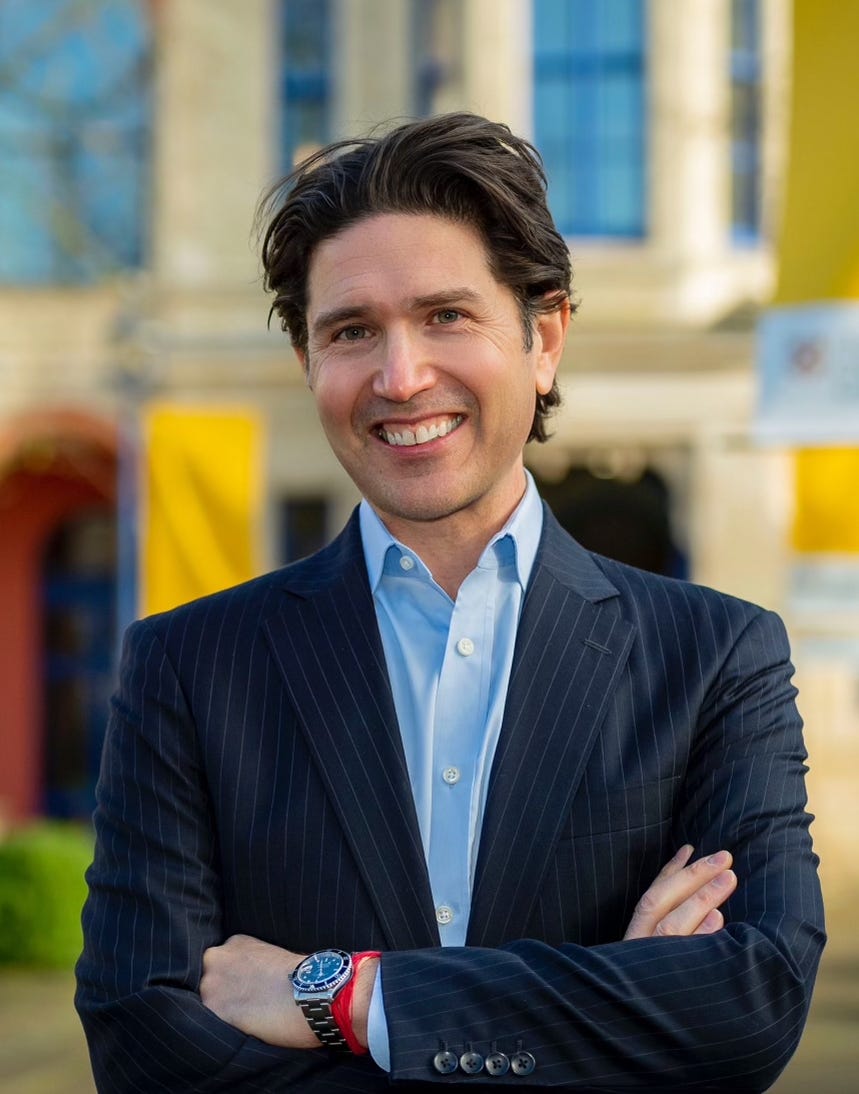Welcome to Regeneration Insights
A regular newsletter that explores how businesses can drive systemic change through regeneration, spotlighting models, movements, and ideas that advance social and environmental transformation.
My name is Christopher Marquis, and I am the Sinyi Professor at the University of Cambridge Judge Business School. Prior to Cambridge, I spent seventeen years teaching in the USA at Cornell, Harvard Business School, and the Harvard Kennedy School.
I write a regular column for Forbes and my work has appeared in the Financial Times, The Guardian, Washington Post, Fortune, Boston Globe, Fast Company, The American Prospect, Jacobin, Project Syndicate, TIME, Barron’s, Foreign Policy, The Hill and Harvard Business Review as well as many academic journals ranging from the American Journal of Sociology and American Sociological Review to Administrative Science Quarterly and Academy of Management Review.
My recent books include The Profiteers: How Business Privatizes Profit and Socializes Cost (2024), Better Business: How the B Corp is Remaking Capitalism (2020), and Mao and Markets (2022), a Financial Times “Best Book of 2022.”
Some praise for The Profiteers includes:
“Timely and full of sharp insight” ―Kate Raworth, author of Doughnut Economics
“A profound call to action”―Paul Hawken, cofounder, Smith & Hawken, and author of Regeneration
“Powerful, passionate, and persuasive.” ―Rebecca Henderson, McArthur University Professor, Harvard University
Why this Newsletter
Regeneration Insights grew out of a growing sense that traditional sustainability models—rooted in “doing no harm”—are no longer enough. We need a shift in mindset, one that moves beyond doing less harm to actively restoring and renewing our social and ecological systems.
For over 20 years, I’ve studied social entrepreneurs, alternative ownership models, and businesses that defy extractive logic. What unites the most compelling examples is this: they don’t just aim to succeed within existing systems—they aim to change them. Whether through reimagined supply chains, new governance structures, or a radically different relationship with nature, these companies are leading the way toward regeneration.
In this newsletter, I aim to connect the dots between those stories—across sectors, geographies, and disciplines—to show what’s possible and provoke new thinking.
What to Expect
Each edition of Regenerative Insights, designed to be read in under five minutes, while still provoking deeper thought, brings together stories, research, and reflections at the intersection of business innovation and ecological renewal.
You can expect:
Saturday: Regeneration in the Headlines.
Start your weekend with a curated digest of the week’s most notable developments in regenerative business and systems change. I add context, analysis, and connections to show how seemingly isolated stories reveal broader shifts in business, policy, and culture. The goal is to help you stay ahead of the curve and have a trusted guide cutting through the noise each week.
Tuesday: Research Digest.
I break down new and important academic work on sustainability strategy, systems change, and regenerative business models. The goal: bridge the gap between academic theory and business practice, so actional insights can be applied to the latest thinking on sustainability, systems, and regeneration.
Wednesday: Journey to Regeneration Podcast Highlights.
A quick, readable distillation of my weekly podcast, Journey to Regeneration, produced with Cambridge Judge Executive Education. Every episode features real conversations with change-makers—academics, entrepreneurs, sustainability leaders, and climate advocates—about what it takes to build truly regenerative businesses. You can always listen to the full episode, but the highlights give you the essentials in a few minutes.
Thursday: Case Study Discussion.
The front lines of business transformation, drawing on my reporting for Forbes and interviews with company leaders. I bring you paired case studies—two companies in a related industry or facing a similar challenge—so you can see how different pathways to regeneration play out in practice. These side-by-side stories let you compare approaches, spot patterns, and draw your own conclusions about what real systems change looks like.
I also occasionally publish longer featured essays that step back from the week-to-week rhythm to trace the bigger picture—how regenerative principles are quietly rewriting the rules of entire industries. They’re designed to spark new ways of thinking and offer you the kind of perspective that shifts how you see both business headlines and your own work.
Who this is for
Regeneration Insights is for anyone who believes that business can—and must—be part of building a better world.
Whether you’re a CEO or a student, a designer or a policymaker, an investor, educator, entrepreneur, or activist—if you’re asking deeper questions about how we live, build, grow, and govern, you belong here.
This newsletter is for those who are tired of business-as-usual and curious about what’s next. It’s for people who care about climate, justice, creativity, and long-term value—not as buzzwords, but as building blocks of a different future.
If you're hungry for real solutions and inspired by stories of people challenging the status quo, this newsletter is for you. Regeneration isn’t a niche—it’s a growing movement. And the more we learn from each other, the faster it grows.
Subscribe to join a global community of changemakers—and help shape the conversation about what business can be.


